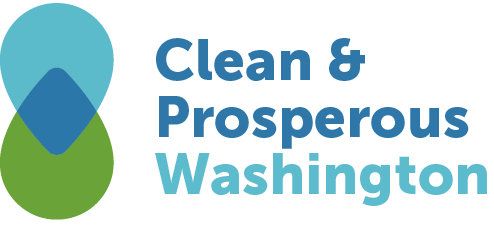Mid-Session Legislative Update
Last November, Washington voters issued a resounding endorsement of the Climate Commitment Act (CCA). That victory – which outperformed almost all other statewide candidates and initiatives – proves that Washington state residents and businesses care deeply about combating climate change with commonsense, effective policy solutions.
This legislative session, we have an opportunity to build on that momentum and ensure Washington state remains the national leader in creating a clean energy economy. With that in mind, Clean & Prosperous Washington (CaPWA) is focused on three key pieces of legislation that will strengthen and sustain the CCA while ensuring companion regulatory policy and incentive structures support its ultimate purpose: Reducing emissions while growing the economy.
House Bill (HB) 1975
HB 1975, a bipartisan bill led by Majority Leader Joe Fitzgibbon and Rep. Mary Dye, makes technical amendments to the CCA in four areas:
- Directs the Department of Ecology to produce regular analysis related to cap compliance, carbon market supply and demand, and allowances issued;
- Extends and makes minor changes to the Allowance Price Containment Reserve (APCR) to ensure long-term market sustainability;
- Shifts the emissions cap to align with end of year targets to comply with existing State emission limits; and
- Lowers the auction price ceiling before linkage.
Put together, these technical changes do something incredibly important: They support the long-term success of the CCA by building resiliency against market volatility and taking interim action while we prepare to link with carbon markets in California and Quebec.
HB 1975 passed unanimously out of the House Committee on Energy & Environment and the House Committee on Appropriations. It currently sits in the House Rules Committee for review.

House Bill (HB) 1409
HB 1409 – also led by Majority Leader Fitzgibbon – amends the existing Clean Fuel Standard, which is a complementary tool to the CCA for reducing emissions. These amendments would create a steadier compliance schedule through 2034, increase feedstocks used for biofuel production, and adjust the penalty structure for noncompliance with the standard.
An effective and resilient Clean Fuel Standard (CFS) is essential for the long-term health of cap-and-invest. The current standard possesses an insufficient level of stringency that is out of step with clean fuels markets in other states. This in turn puts more pressure on allowance prices at the quarterly CCA auctions. By bringing the Clean Fuel Standard more in line with the marketplace – without sacrificing aggressive emissions reduction targets – we ultimately preserve the sustainability of cap-and-invest by relieving pressure on allowance prices.
While the crux of the CFS changes are commonsense, we need to remain aggressive in catalyzing biofuel production in Washington (more on that below). The bill weakens a biofuels facility requirement intended to ensure economic growth for our agriculture partners and good-paying jobs in advanced manufacturing and construction. More can be done to stimulate these opportunities.
HB 1409 passed out of the House Committee on Energy & Environment and the House Committee on Appropriations. It currently sits in the House Rules Committee for review.
Senate Bill (SB) 5601
SB 5601 – led by Senate Transportation Chair Marko Liias – aims to increase the production and use of sustainable aviation fuels (SAF) in Washington state. This bill directs the Department of Ecology to develop a SAF Competitive Grant program and creates various incentives – including tax deferrals and exemptions – to entities that manufacture SAF.
Developing our state’s biofuels capacity is crucial for meeting our emissions reduction goals. Aviation – when combined with marine and rail operations – makes up for 16 percent of our greenhouse gas emissions in Washington, according to the State Department of Ecology. Transitioning from traditional jet fuel to biofuels will reduce those emissions while creating green jobs and generating economic opportunity for industries like agriculture, which would provide some of the feedstock needed to create alternative fuels.
SB 5601 was not passed out of the Senate Committee on Ways & Means ahead of the fiscal cutoff. However, the important ideas in this bill remain relevant and continue to be considered.

Alongside these bills, a broad coalition – including CaPWA – is supporting legislation that addresses the implementation of promised CCA exemptions for agricultural producers.
Altogether, these bills support the long-term resiliency of Washington’s carbon market, set us up for effective linkage with other jurisdictions, and further catalyze clean energy production, which in turn creates good jobs and grows our economy.
CaPWA will continue tracking this legislation – along with the broader universe of climate-related bills – throughout session. Follow us on social media to stay up-to-date on this work:
- LinkedIn: @clean-and-prosperous-washington
- Instagram: @cleanprosperouswa
- Bluesky: @cleanprosperouswa.bsky.social

